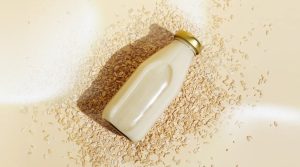FAQ for GLP-1 Patients: Follow-up Visits
Why haven’t I lost weight on my medication?
Some patients will notice an immediate weight loss and others will require higher doses of medication to achieve weight loss. Continue to use your medication as prescribed and your provider will titrate as necessary to promote weight loss
When can I expect my side effects to resolve?
Most people find that side effects decrease over time. If you are finding it hard to manage side effects, please mention this to your provider.
How can I maintain my weight loss?
Exercise 3-5 days a week, drink plenty of water and eat a well balanced diet. Smaller portion sizes can help reduce excess calorie consumption.
As far as healthy eating goes, patients are not required to follow a specific diet, but it is important that you implement a reduced-caloric diet. Here are some recommendations:
- Decrease calories and work up to a ~500 kcal daily energy deficit
- Consider intermittent fasting (IF), including time-restricted eating (TRE) and intermittent calorie restriction (ICR)
- Eating plans such as the DASH (Dietary Approaches to Stop Hypertension) diet, Therapeutic Lifestyle Changes diet, the Mediterranean Diet, or following the American Heart Association (AHA) 2021 Dietary Guidance to Improve Cardiovascular Health are all worth considering
- If you need assistance with meal planning or have special dietary needs, it may be helpful to seek guidance from a registered dietitian
- Include a wide variety of nutrient-dense foods, such as fruits, vegetables, lean meats, low-fat dairy, seafood, nuts, seeds, legumes and whole grains
- Replace foods that are high in cholesterol, saturated fat (animal fats) and trans fats (fried, processed foods) with foods that are high in monounsaturated and polyunsaturated fats like olive oil, nuts, seeds and avocado
- Minimize refined carbohydrates, sweets and sugar-sweetened beverages
- If you cannot eat at least 1,200 calories each day, a multivitamin may be needed to ensure you’re meeting your nutritional needs
- After you reach your weight loss goal, it’s important to continue a healthy eating pattern to avoid weight regain
What happens if I miss more than two doses of my medication?
If you miss more than 2 weeks of a GLP-1 medication, we suggest reinitiating the dosing schedule to reduce the chance of GI side effects. For example, if you are on level 3 of Ozempic, but have missed 3 weeks due to shortage or being out of town, we would restart you on level 1.
What do I do if there is a shortage of my brand medication?
Due to high demand of GLP-1 medications, some branded medications may be out of stock or short on supply. If your prescribed dosage is out of stock, we may not be able to fill a higher dose of your medication. Options include having our team complete and submit a Prior Authorization on other GLP-1 medications that your insurance might cover, discussing starting a compound medication, or your provider refilling your current dose of medication if it is available. What is a compound medication?
Drug compounding is the process of combining, mixing or altering ingredients to create a medication tailored to the needs of an individual patient. Compounding includes the combining of two or more drugs. These are not FDA-approved, however, we conduct strong due diligence processes with each of our compounding partners.
We ensure that the product being used is:
- Pharma grade (not research grade)
- Base form (not salt form)
- Passed through third party quality / sterility testing
Here is some more information on this directly from the FDA.
What happens when I reach my goal BMI?
Once you reach a BMI of 25, your weight management clinician will start to de-escalate your dose. Once your BMI is between 22-24, you should ideally be at the lowest dose of medication. If you start to regain weight, your weight management clinician can begin to escalate the dose. It is recommended that you continue living a healthy lifestyle to maintain your weight loss.
Do I have to have a follow up every month?
For GLP-1 medications, follow ups are recommended at 1 month intervals until you have reached a steady state, at which time you will meet with your provider every 3 months.
How do I administer the medication my provider ordered today?
Injecting using a pre-filled pen (typically a branded GLP-1):
Injecting using a vial/needle/syringe (typically a compounded GLP-1):
How to inject compounded tirzepatide
What is a branded GLP-1 medication?
Branded GLP-1s, renowned for their groundbreaking applications in diabetes management, have emerged as a promising and innovative solution for individuals seeking effective and sustainable weight loss. Engineered by leading pharmaceutical companies, these GLP-1 receptor agonists harness the power of Glucagon-Like Peptide-1 to not only regulate blood sugar levels but also to address the intricate interplay between metabolism and body weight.
The distinct feature that sets these branded GLP-1s apart in the realm of weight management is their ability to influence satiety and reduce appetite. The drugs work by mimicking GLP-1, a gut hormone produced naturally by your body that is involved in insulin release and appetite regulation. GLP-1 medications have been shown to encourage insulin release after you eat, while also inhibiting glucagon production and slowing down digestion. Together, these effects help to control blood sugar, reduce appetite, and lead to weight loss.
The medications are often accompanied by user-friendly delivery methods such as injectable pens. Currently, some GLP-1 medications are only FDA-approved to manage blood sugar levels or reduce cardiovascular risk in people with type 2 diabetes, like Ozempic and Mounjaro. Others, including Zepbound, Wegovy and Saxenda, are specifically approved for weight loss. However, health providers may prescribe medications like Ozempic and Mounjaro off-label for weight loss, if they feel the drug is the best option for their patient.
What is a compounded GLP-1 medication?
Drug compounding is often regarded as the process of combining, mixing or altering ingredients to create a medication tailored to the needs of an individual patient. Compounding includes the combining of two or more drugs. Compounded drugs are not FDA-approved. That said –
- We ensure that the ingredients used in the prescribed GLP-1 compounds are pharmaceutical grade and NOT research grade.
- We ensure that the GLP-1 medication is compounded using its base form and NOT its salt form.
- The compounding pharmacy conducts third-party quality testing to check for potency, sterility and the presence of toxins.
- We ensure complete due diligence of the compounding pharmacy, including but not limited to accreditations, licensures, and manufacturing/storage/tracking processes.









